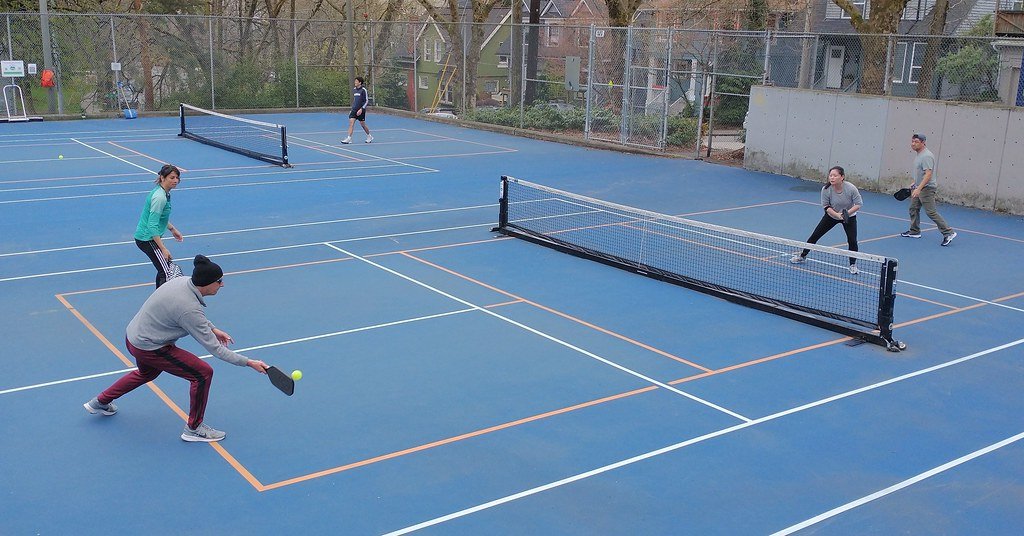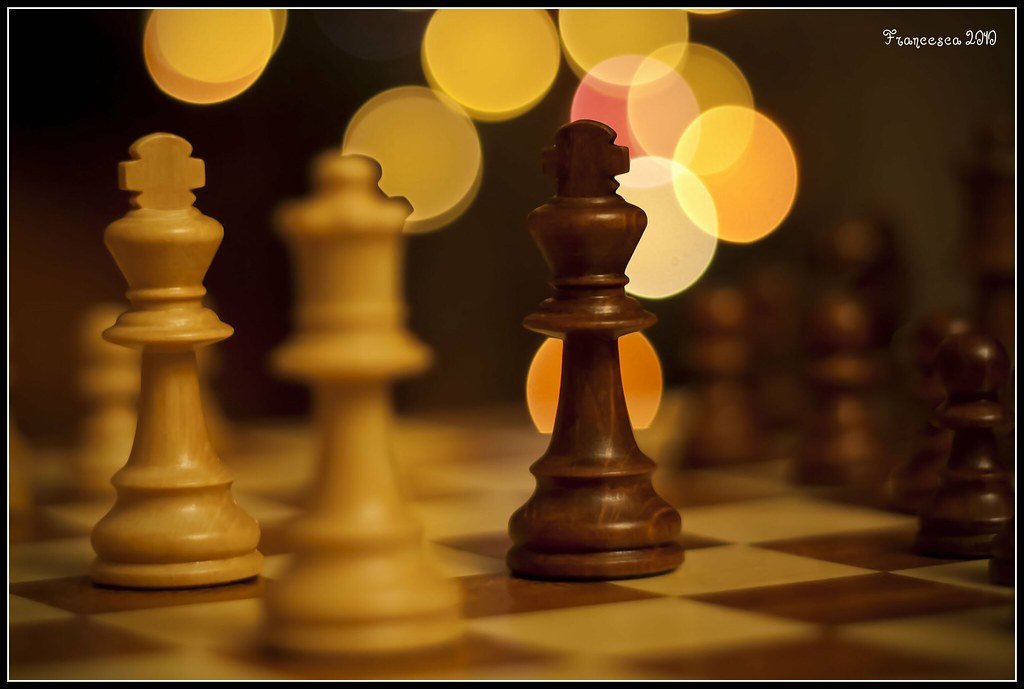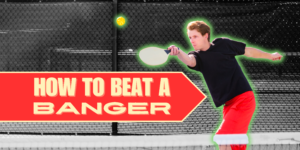As the sun hangs high in the sky, casting a warm glow over the vibrant pickleball court, a battle of wits and skill is about to commence. It’s not just about the power of your swing or the precision of your shots. No, it goes much deeper than that; it’s about delving into the intricate layers of your opponent’s mind. Welcome to the enthralling world of reading your pickleball opponent—a psychological approach that holds the key to unlocking victory on the court. In this article, we will explore the nuances of psychological gameplay, revealing strategies that will elevate your pickleball prowess and enable you to anticipate, adapt, and ultimately outsmart your opponents on the path to victory. So, lace up your shoes, grip your paddle tightly, and prepare to delve into the captivating realm where strategy meets psychology in the realm of pickleball.
Table of Contents
- Reading Your Pickleball Opponent: A Psychological Approach
- Understanding the Mental Game: Decoding Your Opponent’s Strategy
- Unmasking the Mind Games: Analyzing Body Language and Cues
- Mastering the Psychology of Shot Selection: Anticipating Your Opponent’s Moves
- Adapting to Different Personalities: Utilizing Psychological Strategies for Success
- Building a Winning Mindset: Harnessing Confidence and Mental Resilience
- Q&A
- Key Takeaways

Reading Your Pickleball Opponent: A Psychological Approach
When you step onto the pickleball court, it’s not just about physical skill and technique; it’s also about understanding the psychology of your opponent. By observing and analyzing their behavior, you can gain valuable insights that can give you the upper hand in the game. Here are some key strategies to help you read your pickleball opponent:
1. Body Language
- Posture: Observe how your opponent carries themselves on the court. Are they standing tall and confident, or hunched over with tense shoulders? Posture can give you clues about their level of comfort and focus.
- Movement: Pay attention to their footwork and agility. Are they fast and nimble, or do they seem sluggish? Their movement patterns can indicate their strengths and weaknesses.
2. Shot Selection
- Patterns: Notice the types of shots your opponent tends to play. Are they consistently aiming for the corners, or do they prefer safer shots down the middle? Understanding their shot selection patterns can help you anticipate their moves.
- Variety: Watch out for any predictable or repetitive shots. A lack of variety in their game can be exploited by changing up your own shots and throwing them off balance.
3. Reactions and Emotions
- Stoicism: Some players have poker faces and rarely show emotion, while others wear their heart on their sleeve. Take note of how your opponent reacts to both successful and unsuccessful shots. Their emotional state can be a valuable insight into their mental game.
- Frustration: Pickleball opponents may get frustrated when things aren’t going their way. If you detect frustration in their demeanor, use it to your advantage by maintaining your composure and capitalizing on any opportunities it presents.
By incorporating these psychological approaches, you can develop a better understanding of your pickleball opponent, allowing you to adapt your strategy and maximize your chances of success on the court.

Understanding the Mental Game: Decoding Your Opponent’s Strategy
When it comes to any competitive endeavor, understanding the mental game is just as important as mastering the physical skills. In the world of strategy games, be it chess, poker, or any other game that requires strategic thinking, deciphering your opponent’s strategy can give you a significant advantage. Here are a few key insights to help you decode your opponent’s moves:
- Pattern Recognition: Pay attention to recurring patterns and tendencies in your opponent’s gameplay. Are they often defensive, aggressive, or unpredictable? By identifying these patterns, you can anticipate their next move and adjust your strategy accordingly.
- Body Language: Don’t underestimate the power of body language. Observe your opponent’s gestures, facial expressions, and overall demeanor. Are they displaying signs of confidence, anxiety, or deception? These non-verbal cues can reveal valuable information about their strategy and level of comfort in the game.
- Mind Games: Strategy games often involve psychological warfare. Skilled players use various mind games to deceive and manipulate their opponents. Be aware of subtle tactics like baiting, bluffing, or misdirection. Maintaining a calm and composed demeanor can help you see through these mind tricks and make more informed decisions.
Remember, understanding your opponent’s mental game is a continuous process that requires keen observation and adaptability. By analyzing their strategy and mindset, you’ll gain a crucial edge in outsmarting them and emerging victorious in any strategic battle.

Unmasking the Mind Games: Analyzing Body Language and Cues
Body language is a fascinating aspect of human communication that can reveal a wealth of information about a person’s thoughts, feelings, and intentions. By analyzing subtle cues and non-verbal cues, we can gain valuable insights into the mind games people may play.
One important aspect of body language to consider is facial expressions. The way a person holds or moves their face can speak volumes about their emotions. For example, eyebrows raised with a slight frown might indicate surprise or confusion, while a tight-lipped smile could suggest skepticism or hidden motives. Paying attention to these small details can help us decipher the hidden messages behind someone’s words.
Furthermore, body movements and gestures are equally significant in unraveling mind games. Crossing arms might signal defensiveness or resistance, while open palms express honesty and openness. Posture can also convey a lot about a person’s confidence and assertiveness. A slouched or tense posture may indicate anxiety or insecurity, while a relaxed and upright stance can reflect self-assuredness. By observing these cues, we can navigate the mind games people may engage in and respond more effectively.
Mastering the Psychology of Shot Selection: Anticipating Your Opponent’s Moves
When it comes to competitive sports, it’s not just physical skill that separates the average players from the champions. The ability to anticipate your opponent’s moves and make strategic shot selections can give you a significant advantage on the court. Understanding the psychology behind shot selection is a key aspect of mastering this skill.
1. Reading body language: Learning to decipher your opponent’s body language can provide valuable clues about their next move. Is their posture tense or relaxed? Are they leaning towards a particular direction? These subtle cues can be a window into their intentions, enabling you to predict their potential shots and respond proactively.
2. Identifying patterns and habits: Just like you, your opponent is likely to have certain patterns and habits when it comes to shot selection. By observing their previous games or matches, you can identify recurring strategies they tend to employ. This can aid in anticipating their future moves and adjusting your shot selection accordingly.
3. Mind games and deception: Shot selection is not only about reactively perceiving your opponent’s moves; it’s also about influencing their decision-making process. By strategically incorporating deceptive shots or unexpected angles into your game, you can disrupt your opponent’s rhythm and force them to play on your terms rather than theirs.
Mastering the psychology of shot selection requires a combination of sharp observation, mental agility, and strategic thinking. By honing these skills, you can elevate your game to new heights and stay one step ahead of your opponents.
Adapting to Different Personalities: Utilizing Psychological Strategies for Success
Understanding and effectively interacting with individuals who have different personalities is crucial for personal and professional success. By utilizing various psychological strategies, we can enhance our skill set and adapt to different personalities with ease.
1. Active listening: Listening attentively to others not only shows respect but also helps in understanding their personalities better. Engage in active listening by maintaining eye contact, nodding, and paraphrasing what the other person is saying.
2. Empathy: Showing empathy towards others allows us to connect and relate to their emotions, thoughts, and experiences. By putting ourselves in their shoes, we can gain a better understanding of their perspectives and adapt our communication style accordingly.
3. Flexibility: Recognize that different personalities may have different communication styles and preferences. Stay flexible and adapt your approach to match their needs. Some individuals may prefer direct and assertive communication, while others may respond better to a more collaborative and diplomatic approach.
4. Emotional intelligence: Developing emotional intelligence helps in recognizing and managing both our own emotions and the emotions of others. By being aware of our own biases and emotions, we can avoid misunderstandings and effectively navigate conflicts that may arise when dealing with different personalities.
5. Building rapport: Building rapport is key to establishing a positive and productive relationship. Find common ground and shared interests with individuals of different personalities to create a sense of connection and trust. This fosters open communication and collaboration.
6. Adjusting non-verbal cues: Pay attention to non-verbal cues such as body language and tone of voice. Adjust your own non-verbal communication to match the other person’s style. Mirroring their body language and speaking at a similar pace can help establish rapport and make them feel more comfortable.
By incorporating these psychological strategies into our interactions, we can develop a deeper understanding of different personalities and use this knowledge to achieve greater success in various aspects of our lives.
Building a Winning Mindset: Harnessing Confidence and Mental Resilience
In the pursuit of success, having a winning mindset is crucial. It encompasses a combination of confidence and mental resilience that empowers individuals to overcome challenges and achieve their goals. Building such a mindset is not an overnight process; it requires consistent effort and self-reflection. Let’s explore some key strategies and techniques that can help you harness confidence and enhance your mental resilience:
- Embrace a Growth Mindset: Adopting a growth mindset is vital for building confidence and mental resilience. Believe that your abilities can be developed through dedication and hard work. This mindset allows you to approach challenges as opportunities for growth rather than setbacks.
- Set Clear and Achievable Goals: Defining clear and achievable goals helps you stay focused and motivated. Break down larger goals into smaller, manageable tasks, and celebrate each milestone achieved. This sense of accomplishment will gradually build your confidence and enhance your mental resilience.
- Cultivate Positive Self-Talk: Train yourself to replace negative self-talk with positive affirmations. Encourage yourself by acknowledging your strengths and achievements. Embrace self-compassion, as it enables you to bounce back from setbacks and maintain a positive outlook.
- Seek Support and Surround Yourself with Positivity: Building a winning mindset becomes easier when you have a support system. Surround yourself with positive influences, such as mentors, friends, or like-minded individuals who uplift and encourage you. Their support will bolster your confidence and resilience.
- Practice Mindfulness and Visualization: Incorporate mindfulness and visualization techniques into your daily routine. Mindfulness helps you stay present and focused, while visualization allows you to imagine yourself succeeding in challenging situations. These practices enhance mental clarity and strengthen your confidence.
Remember, building a winning mindset takes time and effort. Be patient with yourself, celebrate your progress, and stay determined. By harnessing confidence and mental resilience, you pave the way for achieving your goals and unlocking your true potential.
Q&A
Q: What is the importance of reading your pickleball opponent?
A: Reading your pickleball opponent is crucial as it allows you to anticipate their moves, weaknesses, and playing style. Understanding their psychology can give you a strategic advantage during the game.
Q: How can psychological insights help in pickleball?
A: Psychological insights help in pickleball by allowing players to analyze their opponent’s emotional patterns, decision-making processes, and reactions to different situations. This information helps players make more informed choices while playing.
Q: What are some key signs to look for when reading your opponent?
A: Observing your opponent’s body language, facial expressions, and any patterns in their shots can provide valuable insights. Pay attention to their tendencies and reactions to assess their strengths and weaknesses.
Q: How can intuition play a role in reading your opponent?
A: Intuition plays a significant role in reading your opponent as it helps you sense their next move. By honing your intuition through practice and experience, you can anticipate their shots and respond effectively.
Q: What are the benefits of predicting your opponent’s shots?
A: Predicting your opponent’s shots gives you a competitive edge by allowing you to position yourself strategically, saving time and effort during the game. It also enables you to counter their shots more effectively.
Q: Can reading your opponent help in developing your own playing style?
A: Yes, reading your opponent not only provides insights into their game but also encourages you to analyze your own playing style. By understanding what works against different opponents, you can fine-tune your approach and improve overall gameplay.
Q: How can focusing on your opponent’s weaknesses benefit you?
A: By identifying and exploiting your opponent’s weaknesses, you can put them under pressure and force errors. This strategy can unsettle your opponent’s confidence and potentially turn the game in your favor.
Q: How does mental agility aid in reading your opponent?
A: Mental agility helps you quickly assess and adapt to your opponent’s strategies during a match. Being mentally flexible allows you to develop effective countermeasures and adjust your game plan accordingly.
Q: Are there any risks or limitations to reading your opponent?
A: While reading your opponent can be advantageous, relying solely on it may make you predictable and hinder your overall performance. It’s important to strike a balance between reading your opponent and focusing on your own game.
Key Takeaways
As the final chapter of our journey into the captivating world of pickleball comes to a close, we hope you’ve enjoyed this unique psychological approach to the game. Throughout this article, we delved deep into the intricacies of reading your opponent, unraveling the enigmatic human mind on the court.
Pickleball, born out of passion and ingenuity, is not your usual backyard game. It demands more than just physical prowess; it calls for a keen understanding of the psychological chess match that unfolds with every paddle swing. The ability to decipher your opponent’s thoughts, emotions, and strategies can be the defining factor between victory and defeat.
With each serve, backhand flick, and nimble footwork, the art of reading becomes an essential skill for any aspiring pickleball enthusiast. It’s a dance of anticipation, where intuition and observation intertwine on the court’s canvas. From the initial moment your eyes meet, you embark on a journey to uncover the hidden narrative in their movements, facial expressions, and even subtle shifts in their grip.
Through this psychological approach, we have unraveled the mysteries of the human psyche in every step and swing of the game. We’ve discussed the power of body language, deciphering the hints and clues they unknowingly reveal. From the twitch of a muscle to the slightest frown, these tiniest nuances become breadcrumbs leading you to their next move.
Yet, let us not forget the delicate balance between psychological prowess and good old-fashioned sportsmanship. For in reading our opponents, we do not stoop to manipulation, but rather we engage in a symbiotic exchange of challenge and growth. It is a dance where respect and admiration for our fellow players intertwine with our quest for victory.
In the end, pickleball is not merely about the triumph of winning but the relentless pursuit of self-improvement and an unsatiated hunger for progress. As you step off the court, armed with newfound psychological insights, remember that the beauty of this age-old sport lies not only in honing your skills but understanding the intricate tapestry of human behavior.
Our minds hold a multitude of stories waiting to be told, and it is in the game of pickleball that we become the authors, turning each page with every swing. So, as you continue your journey, remember the wisdom born from reading your opponents and take pleasure in the psychological dance that only these painted lines can bring.
As an affiliate, my content may feature links to products I personally use and recommend. By taking action, like subscribing or making a purchase, you’ll be supporting my work and fueling my taco cravings at the same time. Win-win, right?
Want to read more? Check out our Affiliate Disclosure page.




